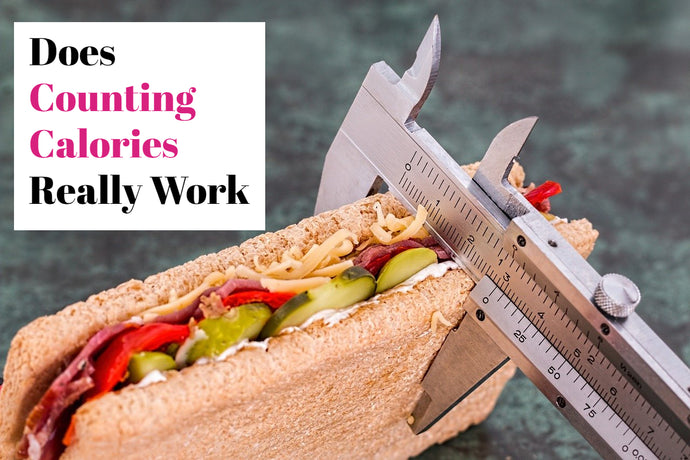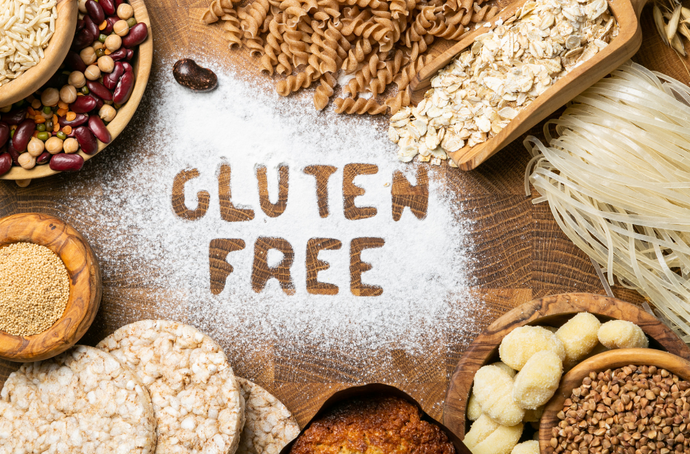
You must have seen various popular diets are currently circulating on the internet. Whether you've achieved success with them or are exploring alternatives, there's a straightforward option worth considering the 1200-calorie diet.
The dietary approach is a great way one can use to reduce your calorie intake. The best thing is that you don’t have to eliminate specific foods from your diet completely. Excessive calorie consumption usually results in weight gain and various unwanted health issues.
Further, unhealthy eating choices can result in elevated blood sugar levels and increased levels of harmful cholesterol.
High-calorie foods that lack essential nutrients include:
-
Soda
-
Cookies
-
Chips
-
Candy
-
Chocolates
A 1200-calorie diet offers a structured meal plan to support weight loss. It doesn’t even include excess calories that you may consume from snacks and sodas during the day.
However, it's important to note that this diet may not be suitable for everyone.
Individuals choose this diet to create a calorie deficit by consuming fewer calories than they burn through physical activity. Customising an eating plan based on your current weight, desired weight goal, and exercise level can be a key strategy for achieving success.
What is a 1200-calorie Diet?
Did you know adults typically require between 1,600 to 3,000 calories per day, on average to maintain their current body weight?
When an individual shifts towards consuming fewer calories than their body requirements, it results in weight loss.
At first, the body starts burning fat for energy, and with time, it breaks down other tissues. It includes muscles to meet required energy needs. It is essential to know that most individuals need more than 1,200 calories daily.
Consequently, those who reduce their daily calorie intake to 1,200 can anticipate experiencing weight loss. It can be beneficial, particularly for individuals who are dealing with excess weight or obesity.
What Does a 1200-calorie Daily Meal Plan Consist of?
If you want to follow a 1200-calorie diet successfully, choose nutrient-dense foods that meet your nutritional requirements, that may promote weight loss.
This is essential because, with just 1200 calories available, every calorie must count towards your overall health and well-being. Whenever possible, focus on optimising your calorie intake by including whole foods such as-
-
Lean proteins
-
Carbohydrates
-
Fruits
-
Vegetables
Despite the calorie restriction, you can still provide your body with all the necessary macronutrients, vitamins and minerals.
When aiming to improve your eating habits or embark on a weight loss journey, there are moments when you simply crave clear direction on your food choices.
Before going with a 1200-calorie meal plan, it's essential to calculate your daily calorie goal.
Sample Breakfast
- Enjoy three servings of Scrambled Free Range Eggs paired with Sautéed Mushrooms, Spinach, and Cherry Tomatoes, each serving weighing 250 grams.
- Indulge in a Breakfast Salad comprising Mushrooms, Tomatoes, Chorizo, Bacon, Spinach, Boiled Eggs, and a drizzle of Balsamic Vinaigrette. You have two servings of 250 grams each.
- Start your day with a single serving of Granola Mix accompanied by Yogurt and a touch of Toasted Coconut, totalling 250 grams.
- Savour a delightful Berry and Yogurt Bowl for breakfast, with one serving weighing 200 grams.
Sample Lunch
-
Enjoy a serving of Bravas Spanish Chicken Thigh paired harmoniously with Smoked Golden Cauliflower Rice, all in a generous portion of 250 grams.
-
Delight in a single serving of Keto Dill and Garlic Responsibly Fished Barramundi, perfectly portioned at 250 grams.
-
Chicken Enchiladas served alongside Cauliflower Rice Fajitas, Salsa, and a dollop of Sour Cream, all in a satisfying 250-gram serving.
-
Puerto Rican Lemon Coconut Fish with Cauliflower Salad, Roast Fennel, and Green Beans, all in a 250-gram serving.
-
Enjoy a portion of Chicken Parmigiana complemented by Arugula, Beans, and Cherry Tomatoes, thoughtfully prepared in a 250-gram serving.
-
Delight in the aromatic Thai Red Chicken Curry featuring Fresh Basil, Broccoli, and Bamboo Shoots, served in a 250-gram portion.
-
Savour the exquisite Butter Chicken, expertly combined with Stir-fried Broccoli Rice, Capsicums, and Onions, thoughtfully presented in a substantial 250-gram portion.
Sample Dinner
-
Relish the indulgent flavour of Braised Keto Grass-Fed Lamb Stew accompanied by Pumpkin and Cauli Mash, with two servings of 250 grams each.
-
Enjoy a single serving of Puerto Rican Lemon Coconut Fish, served alongside Cauliflower Salad, Green Beans, and Roast Fennel, totalling 250 grams.
-
Savour the tenderness of Slow-cooked Braised Beef Brisket drizzled with Chimichurri and served with Arugula, Green Beans, and Cherry Tomatoes, all in a 250-gram serving.
-
Sip on the heartwarming Pumpkin Soup infused with Middle Eastern Spiced Grass-Fed Beef Mince, served in a single 250-gram portion.
-
Dive into the flavours of Lamb Rogan Josh Curry, artfully crafted in a 250-gram serving.
-
Enjoy a generous serving of Curried Laksa Prawns paired with Cauliflower Rice and Crispy Tempeh, summing up to 250 grams.
Snacks
-
Chicken Bone Broth (2 pieces)
-
Keto Brownie (2 pieces)
What is the Recommended Daily Calorie Intake?
The ideal daily calorie intake varies based on factors such as age, metabolism, and physical activity levels.
As a general guideline, it's recommended that women consume around 2,000 calories a day, while men may require approximately 2,500 calories daily. However, individual calorie needs can differ significantly, and it's essential to consider personal factors when determining the ideal calorie intake.
Your energy requirements are influenced by various factors, including:
-
Age: Growing children and teenagers typically require more energy.
-
Lifestyle: Your activity level plays a significant role in determining your energy needs.
-
Overall Size: Your height and weight can impact the rate at which you expend energy.
Additionally, several other factors can affect your energy expenditure, including:
-
Hormones: Certain hormones, such as thyroid hormones, can influence your metabolism and energy utilisation.
-
Medications: Some medications, like glucocorticoids used to treat inflammation, may impact your energy levels.
-
Health: Being unwell can alter your energy requirements as your body may need additional energy to recover or combat illness.
Is the 1200-calorie Diet Safe?
Several factors influence the daily calorie requirements for adults:
-
Physical Activity: Calorie needs vary based on activity levels. Less active individuals may find the lower end of the calorie range sufficient, while more active adults may require calories at the higher end.
-
Age: Younger adults generally require more calories than their older counterparts.
-
Height: Taller individuals typically have higher calorie requirements compared to people of the same age but shorter stature.
-
Pregnancy and Breastfeeding: Women who are pregnant or breastfeeding have increased calorie needs to support both their own health and the growing needs of their baby.
When it comes to weight loss, many still aim for a daily intake of 1,200 calories. While this low-calorie approach can lead to weight loss for most individuals, it's considered a short-term strategy and not recommended for extended periods.
Low-calorie diets should be meticulously planned to ensure that dieters receive essential nutrients for overall health.
Benefits of a 1,200-Calorie Diet
Promotes Weight Loss
To achieve weight loss, it's crucial to create a calorie deficit, which can be achieved by either increasing physical activity or reducing calorie intake. For many individuals, adopting a 1,200-calorie daily diet can help create this caloric deficit, facilitating weight loss.
While weight loss outcomes may vary based on individual factors like metabolism and nutritional needs, following a nutrient-rich 1,200-calorie diet can lead to a weekly weight loss of 500gm - 1kg.
Supports Longevity
Lowering daily calorie intake may slow down the ageing process, reduce inflammation, and extend lifespan. Additionally, reducing calorie intake may help mitigate inflammation and oxidative damage, both of which are associated with ageing and disease development.
Simplicity and Flexibility
Many individuals find a 1,200-calorie diet appealing due to its flexibility and ease. Unlike restrictive eating plans that limit food choices, a low-calorie diet allows you to enjoy your favourite foods by adjusting other meals and snacks throughout the day.
Even foods typically considered less diet-friendly can be incorporated into a low-calorie diet by moderating portion sizes or reducing intake of high-calorie foods later in the day.
Potential Disadvantages
While a 1,200-calorie, low-carb diet can be advantageous for certain individuals, it may not suit everyone's needs.
Factors such as body weight, activity level and overall health status can affect whether 1,200 calories are adequate. Reducing calorie intake too drastically can lead to fatigue, weakness, and heightened cravings. Without proper planning, a 1,200-calorie diet may also raise the risk of nutritional deficiencies, which could result in long-term health issues.
Furthermore, although a 1,200-calorie high-protein diet may initially lead to weight loss, it may not be sustainable over the long term. This diet solely focuses on caloric reduction without addressing behavioural or lifestyle factors that contribute to weight gain.
For sustainable and effective weight loss, it's advisable to combine a balanced diet rich in whole foods with regular physical activity rather than fixating solely on calorie count. Individuals with underlying health conditions such as diabetes should consult their healthcare provider before altering their diet. It's also essential to listen to your body and adjust your calorie intake as needed.
Conclusion
Overall, it's crucial to establish healthy habits that revolve around prioritising nutritious foods, regular physical activity and finding a sustainable balance.
This approach allows for gradual calorie reduction and reaching your desired weight while maintaining your well-being consistently.


